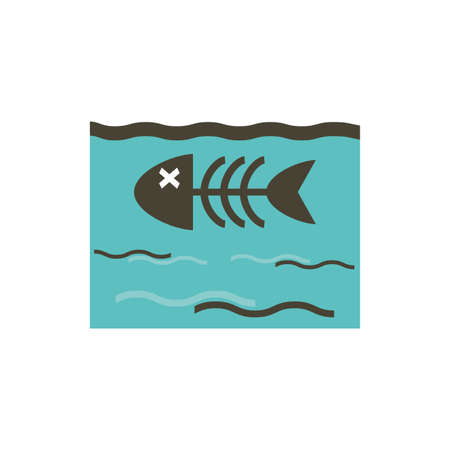The Importance of Knowing the Rules
If you’ve ever fancied a day out by a tranquil British lake, rod in hand and the promise of carp beneath the surface, it’s tempting to think it’s as simple as turning up and casting off. But here’s the thing: understanding legislation and licensing isn’t just ticking boxes – it’s absolutely crucial for any carp angler in the UK, especially when fishing stillwaters. The rules are there not only to protect fish stocks and habitats but also to ensure everyone enjoys fair access and a safe experience. Whether you’re a seasoned regular or brand new to the world of UK carp fishing, getting your head around these regulations means you can focus on what matters most – enjoying those magic moments bankside, without worrying about an unexpected visit from a bailiff or running into trouble with the authorities. Let’s face it, nobody wants their session cut short over a missing licence! So, before you pack your gear and pick your peg, let’s dig into why knowing the rules is your first step to a great day’s carping.
Rod Licences Explained
If you’re keen to cast a line for carp on British stillwaters, there’s one bit of paperwork you simply can’t ignore: the rod licence. It’s a legal requirement for anyone fishing with a rod and line in freshwater across England and Wales, and it’s your golden ticket to enjoy the sport without hassle.
What is a Rod Licence?
Simply put, a rod licence is an official permit issued by the Environment Agency that allows you to fish for coarse fish (like carp) or trout with up to two rods at once. It’s not just about ticking boxes—having one helps support fisheries management and conservation efforts nationwide.
Where to Get Your Rod Licence
Sorting your licence is straightforward. You can buy one online through the GOV.UK website, pop into your local Post Office, or even set up an auto-renewal so you’re always covered. Make sure you have your details handy, including name, address, and date of birth.
How Much Does It Cost?
| Type | Duration | Cost (2024) |
|---|---|---|
| Adult (16–64) | 1 day | £6.60 |
| 8 days | £13.20 | |
| 12 months | £33.00 | |
| Youth (13–16) | 12 months | Free (but registration required) |
| Seniors/Disabled (over 65 or eligible disabled anglers) | 12 months | £22.00 |
What Happens if You Fish Without One?
This isn’t something to take lightly—fishing without a valid rod licence can land you with a hefty fine of up to £2,500 if you’re caught by an Environment Agency bailiff. They do patrol popular waters regularly, so it’s best not to risk it for the sake of a few quid.
A Handy Tip from the Bank:
I’ve seen more than one session interrupted because someone forgot their licence—don’t let that be you! Sort your paperwork before you go, keep proof of purchase handy (digital copies on your phone work), and spend your time focusing on landing those lovely British carp instead.

3. Fishery Permits and Day Tickets
If you’re new to carp fishing on British stillwaters, it’s easy to get muddled up between the Environment Agency rod licence and the local fishery permits or day tickets. Let’s clear that up. First off, every angler aged 13 and over needs a valid Environment Agency (EA) rod licence if they’re fishing for carp anywhere in England and Wales. This is your legal permission to fish, but it doesn’t automatically grant you access to any water.
On top of your EA licence, most stillwater fisheries—whether club-run or privately owned—require anglers to buy a separate permit or a day ticket. Think of this as your entry pass for that particular venue. Day tickets are exactly what they sound like: pay on the day, fish for the day. Some waters also offer season tickets or membership options if you’re planning regular visits.
Buying Day Tickets
Purchasing a day ticket can be straightforward, but each fishery has its own system. Many sell them at an onsite hut, tackle shop nearby, or even online through their website. Increasingly, fisheries are moving towards contactless payment methods or pre-booking systems, so it’s wise to check before you set off.
What to Watch Out For
Always read the details on your ticket: check the fishing times (some venues have strict opening hours), peg allocation (you might need to book a swim in advance), and any specific rules about bait or tackle. Overlooking these can mean disappointment—or worse, being asked to leave. It’s also worth noting if there are concessions for juniors or OAPs (over-65s), as many British fisheries support community angling with discounted rates.
Summary
In short, make sure you have both your EA licence sorted and the right permit for your chosen water. Sorting these out ahead of time means less faffing about when you arrive and more time enjoying those peaceful lakeside moments waiting for that telltale bite.
4. Close Seasons and Local Byelaws
If you’re planning a carp fishing trip on British stillwaters, it’s crucial to be aware of close seasons and local byelaws. These regulations are in place to protect fish stocks during sensitive periods and ensure sustainable angling for everyone. While the traditional coarse fish close season (15th March to 15th June) was lifted from most stillwaters in England back in 2000, it’s not a free-for-all—some venues and regions maintain their own rules, which can catch anglers out if they’re not careful.
National Close Seasons: What’s the Score?
On rivers, streams, and certain canals, the close season is strictly enforced. However, when it comes to stillwaters (such as lakes, reservoirs, and gravel pits), things are less clear-cut. In England and Wales, most stillwaters have no statutory close season for coarse fish like carp. But don’t get too relaxed—many fisheries introduce their own restrictions to safeguard spawning fish or for maintenance work.
Regional Variations: Don’t Get Caught Out
It’s important to remember that Scotland and Northern Ireland have their own sets of rules. For example, some Scottish waters may enforce seasonal closures for particular species or areas. Similarly, club-controlled waters and syndicate lakes throughout the UK often implement byelaws tailored to their unique environments. These can include specific dates when fishing is prohibited or designated no-fishing zones at certain times of year.
Typical Stillwater Carp Fishing Restrictions by Region
| Region | Close Season Dates | Local Byelaw Examples |
|---|---|---|
| England (most stillwaters) | No statutory close season | Club rules may apply; check before visiting |
| Wales (stillwaters) | No statutory close season | Some venues impose voluntary closures during spawning |
| Scotland | Varies by water/club | Certain lochs may have seasonal restrictions for conservation |
| Northern Ireland | Specific dates set for some species/waters | Consult DAERA or venue for details |
A Word to the Wise: Always Double-Check!
The golden rule? Always double-check with the fishery or club before setting off. Even if a venue typically stays open year-round, unexpected maintenance or environmental concerns can lead to temporary closures or new byelaws being introduced at short notice. The last thing you want is to arrive at your favourite lake only to find the gates locked!
5. Best Practice: Respecting Fish Welfare and Site Rules
When it comes to carp fishing on British stillwaters, following the letter of the law is just the starting point—true anglers know that respecting the fish and the venue is what sets you apart. Catch-and-release isn’t just a suggestion; it’s a cornerstone of modern carp angling culture in the UK. Most venues require all carp to be returned unharmed, so always handle your catch with wet hands or a soft, knotless mesh landing net to avoid damaging their protective slime coat.
Carp Care Essentials
Always bring an unhooking mat and use it religiously, even for smaller fish—this isn’t just site policy at most lakes, but a mark of respect for our quarry. If you’re taking photos, keep the fish low over the mat and minimise air exposure—quick snaps are best! Don’t forget to have a bottle of carp care antiseptic handy for any hook holds or scrapes; many fisheries expect you to treat minor wounds before releasing your prize.
Following On-Site Rules
Every venue has its own set of rules, from bait bans and rig restrictions to swim boundaries and net dips. These aren’t arbitrary—they’re there to protect fish stocks, water quality, and everyone’s enjoyment. Always check noticeboards or ask bailiffs if you’re unsure. Remember: breaking site rules can mean instant eviction or even a ban!
The Unwritten Etiquette
Beyond official rules, there’s a shared understanding among British anglers—like keeping noise down, not casting over other people’s lines, and tidying up after yourself (even if it means picking up someone else’s rubbish). A friendly nod or quick chat goes a long way too; we might be here for the solitude, but we’re all part of the same community.
By embracing these best practices—both written and unwritten—you’ll not only stay on the right side of legislation and licensing, but also contribute positively to the future of carp fishing on British stillwaters. Tight lines!
6. Useful Resources and Where to Learn More
If you’re keen to stay on the right side of the rules when fishing for carp on British stillwaters, knowing where to find reliable information is absolutely vital. With regulations occasionally changing and differing across regions, here’s a quick guide to trusted sources that will keep you up-to-date.
Official Government Websites
The Environment Agency (EA) is your first port of call in England for all things related to rod licences, close seasons, and water-specific bylaws. Their website is regularly updated and provides clear guidance on licensing requirements and current regulations. For anglers in Scotland, check with Scottish Natural Heritage or local councils, as rules can differ north of the border.
Angling Trust
This national body represents coarse, game, and sea anglers across England and Wales. Their site is a goldmine for updates on legislation, campaigns for sustainable angling, and detailed guides to legal requirements at various venues.
Fishery and Club Websites
Many stillwaters are managed by private clubs or fisheries, each with their own set of rules—often stricter than national legislation. It’s always wise to visit their official websites or social media pages before heading out. You’ll usually find downloadable rulebooks, details about permits, and contact info if you’re unsure about anything.
Online Angling Forums and Social Media Groups
The UK carp fishing community is both friendly and knowledgeable. Online forums like The Carp Forum or Facebook groups dedicated to regional angling are great places to ask questions and hear about recent changes from fellow anglers who’ve just visited your chosen spot.
Local Tackle Shops
Don’t underestimate the value of a chat at your local bait shop! Staff are usually well-versed in area-specific rules and can tip you off about recent rule changes or enforcement crackdowns at nearby waters.
By keeping these resources handy, you’ll be well-placed to fish responsibly, avoid fines, and make the most of Britain’s fantastic carp waters—all while respecting local traditions and wildlife.


